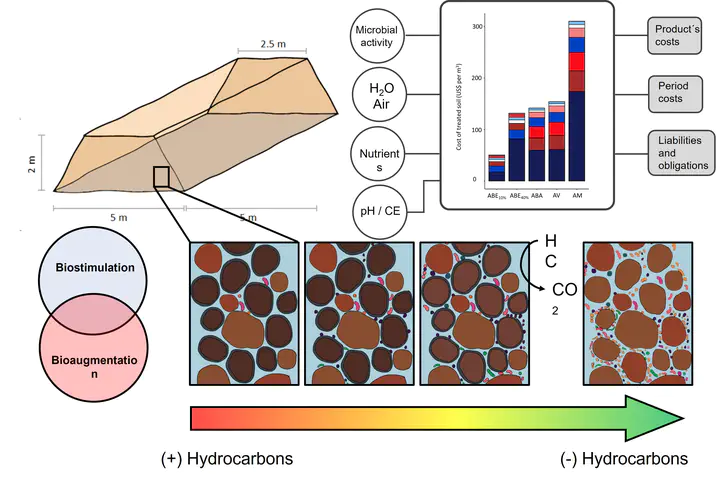 Image credit: [LaBCEM]
Image credit: [LaBCEM]Abstract
Technical advances have converted bioremediation into a large-scale ecosystem service suitable for the treatment of polluted soils worldwide; however, its application in Chile is scarce. The main hurdles that must be addressed include the capacities of such approaches for the treatment of polluted soils, the lack of knowledge about key factors affecting bioremediation costs and the lack of a legal framework to regulate this activity. In this study, the economic performance of the bioremediation of chronically hydrocarbon-polluted urban soils based on bioaugmentation, biostimulation or the combination of both approaches projected to an industrial scale was evaluated. The cost of bioremediation ranged between USD 50.7 and USD 310.4 per m3 of contaminated soil. In addition, the items and activities that had the most significant impacts on the final bioremediation cost, such as compost for biostimulation and bacterial growth media for bioaugmentation-based approaches, were identified. The projected costs were compared against an extensive database of 130 soil bioremediation projects. The bioremediation treatment costs fell within the top 60% of the more expensive projects, highlighting the high effort involved in bioremediation of chronically contaminated soils. This framework can facilitate the decision making of entrepreneurs, consultants, researchers and governmental authorities when launching initiatives to develop a local bioremediation industry capable of cleaning up a high number of polluted sites in Chile.
Supplementary notes can be added here, including code and math.